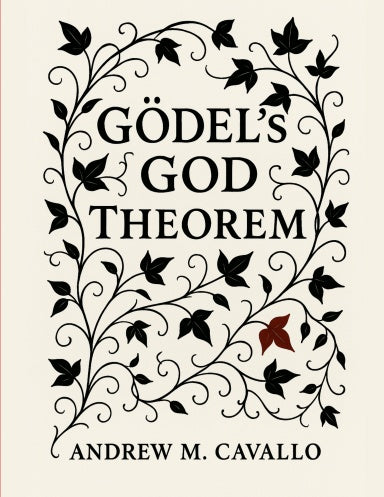Andrew M. Cavallo
Gödel’s God Theorem
Gödel’s God Theorem
Couldn't load pickup availability
Part I
Four interlinking arguments for God’s necessary and unique existence:
- The Gödel–Scott System (GSS): A formalization of Leibniz’s Ontological Argument. It axiomatizes a philosophical notion of positiveness, where a positive property appears to be a conjunction of Leibnizian perfections.
- The ♦–Cosmological Argument (♦CA): My streamlined version of Leibniz’s Cosmological Argument. It avoids the metaphysical baggage of the Kalam Argument, which relies on Aristotelian philosophy.
- The Possible Worlds Argument (PWA): A straightforward yet ingenious contribution of Leibniz.
- The Diagonal Eternal Truths Argument (DETA): My attempt to use Gödel’s Incompleteness Theorems as evidence for mathematical Platonism—and then to use Platonism, in turn, to support a Leibniz-style eternal truths argument.
Part II
An assemblage of notes on higher-order logic (HOL). It begins with the syntax of classical HOL, developed via the typed lambda calculus, and then proceeds to its semantics under both full and Henkin models. From there it treats proof systems and meta-theorems, equality and extensionality, and then extends the framework to modal logic: introducing a base type for worlds, constant and varying domain semantics, Kripke frames, and Henkin/Kripke models. Part II concludes with the notions of rigidity and flexibility in designation. These chapters do not attempt an exhaustive treatment; they are notes on a subject in which I remain as much a student as a teacher.
Book Details
- 68 pages
- Print Book: US Letter (8.5 × 11 in / 216 × 279 mm)
- Standard Black & White
- 60# Cream — Uncoated
- Paperback, perfect bound
- Matte cover
Share


